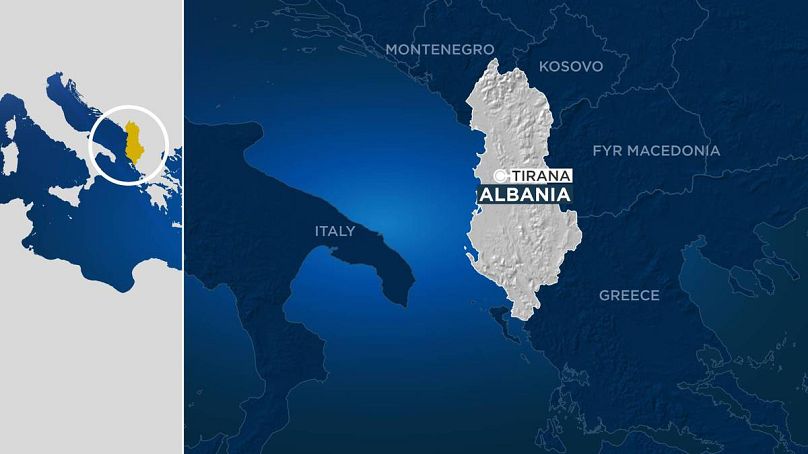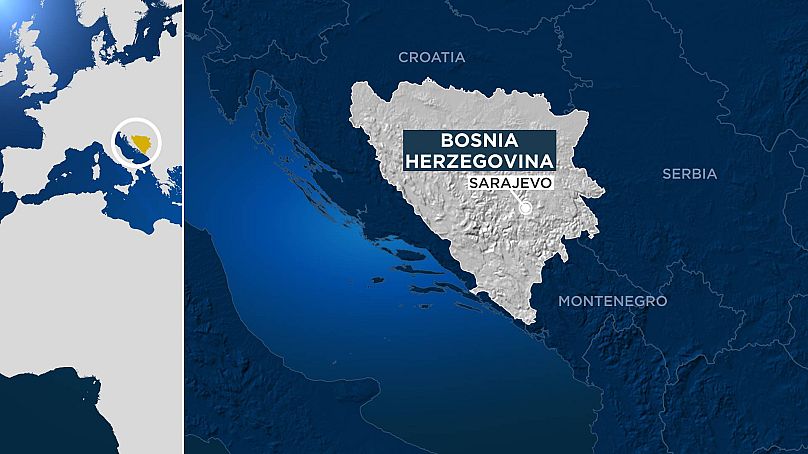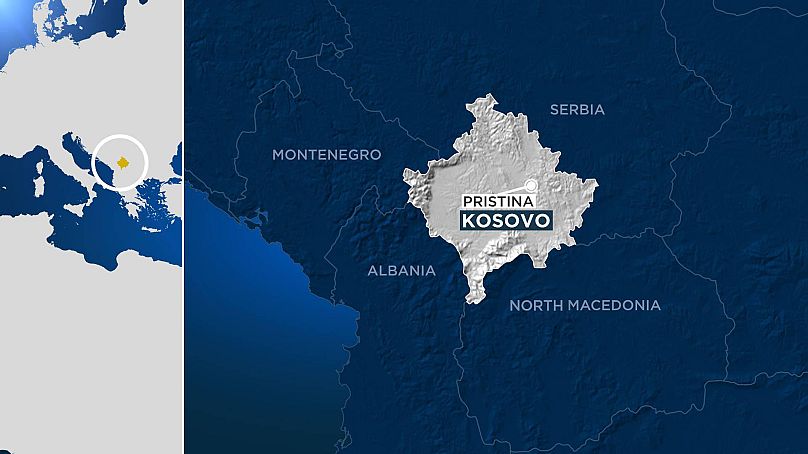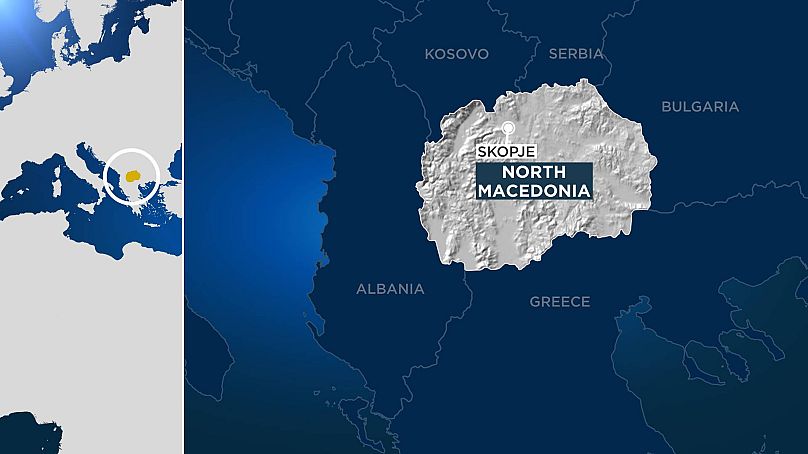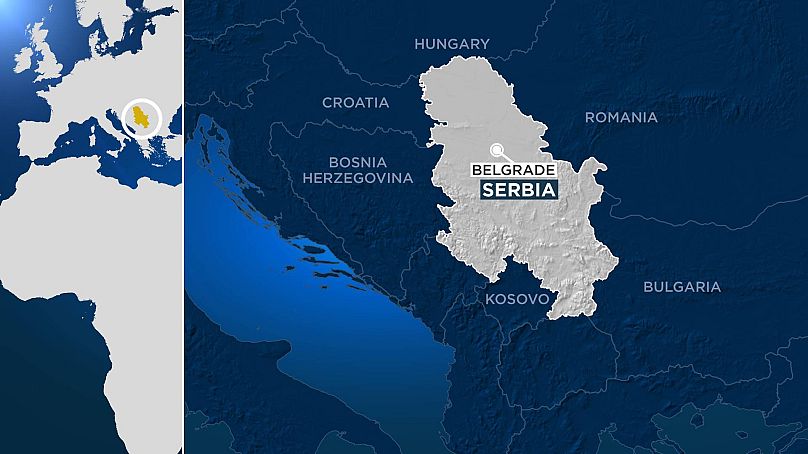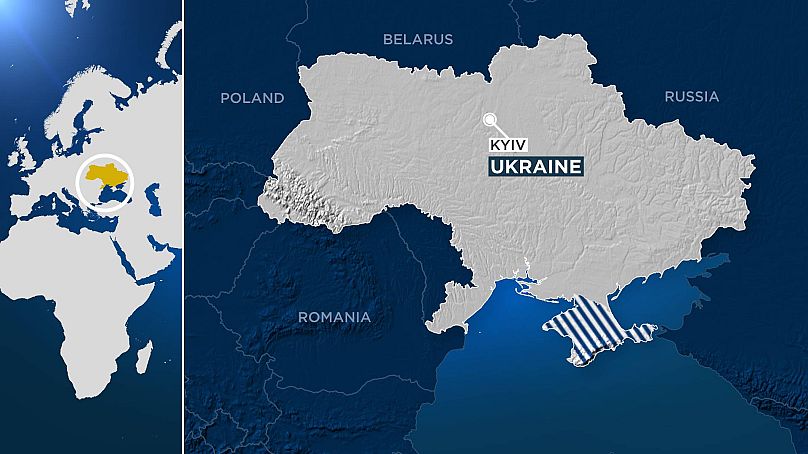Ukraine, Bosnia and Herzegovina, Kosovo and the Republic of North Macedonia are among the countries still empty-handed.
More than a month after the European Union started its vaccination campaign against COVID-19 and amid recriminations about its slow rollout, spare a thought for the poorer countries on the fringes of the bloc, who are yet to receive any jabs.
 ADVERTISEMENT
ADVERTISEMENT
 ADVERTISEMENT
ADVERTISEMENT
Ukraine, Bosnia and Herzegovina, Kosovo and the Republic of North Macedonia are among the countries still empty-handed.
Some are relying on the COVAX scheme, which aims to ensure poorer countries get access to a COVID-19 vaccine.
The initiative — organised by the World Health Organization, Gavi and the Coalition for Epidemic Preparedness Innovations (CEPI) — has yet to deliver any vaccines.
The EU has pledged €870 million to COVAX and a further €70 million to help "Western Balkans partners" secure doses.
But despite this, Brussels has come under heavy criticism for its perceived lack of help for countries neighbouring the bloc.
Albania
Vaccine doses received: more than 1,000 (as of February 11)
Albania said it began its vaccination campaign on January 11, "thanks to the generosity and support of an EU country".
Tirana has received 1,000 doses from the undisclosed benefactor.
It has also taken delivery of the first jabs from a 500,000-dose contract with Pfizer/BioNTech, although it has not disclosed how many.
Albania, population 2.9 million, has asked for 1.14m doses via the COVAX scheme but has not yet received any via this route.
The government says in its best-case scenario it will have 70% of its population immunised within 14 months, worst case two years.
Bosnia and Herzegovina
Vaccine doses received: 0 (as of February 1)
Bosnia and Herzegovina, population 3.3 million, has yet to get it hands on any COVID-19 vaccines, in sharp contrast to its neighbour, Serbia.
Sarajevo says it was one of the first to sign up for the COVAX scheme, but, as of February 1, had not received anything.
Like Serbia, the country, which applied for EU membership in 2016, has announced it will order directly from China, Russia and Pfizer.
“I felt as if the bottom fell out of my hopes for a return to a normal life,” 50-year-old Belma Djonko said in Sarajevo, the Bosnian capital, describing the emotional fallout of hearing that thousands of doctors, nurses and the elderly across the EU had received the first doses of a vaccine, while her deeply divided country is kept waiting.
Dr Goran Cerkez, a junior health minister, said: "Bosnia and Herzegovina was one of the first countries in Europe to apply for COVAX mechanism and sign a contract with COVAX. Unfortunately, we still did not receive a single shipment and we are among those countries of the region that did not start immunisation of their population, together with Montenegro and Northern Macedonia.
"According to some announcements we should get the first deliveries soon and we certainly hope so. However, while we are waiting, we have, through our Federal Foreign Ministry started seeking information and possible contacts with other suppliers and producers of vaccines so that we can try to obtain vaccines from other sources."
The country, ravaged by war in the 1990s, is one of the poorest in Europe.
It has registered more than 3,700 fatalities from COVID-19 and has one of the highest death rates per capita of population.
Kosovo
Vaccine doses received: 0 (as of February 1)
Kosovo, a former province of Serbia that declared independence in 2008, has not taken delivery of any COVID-19 vaccines.
But there are reasons for its 1.8 million inhabitants to be hopeful: the first doses are expected by mid-February.
“The first doses of anti-COVID vaccines will arrive to the Republic of Kosovo in mid-February and we work on it very hard," said health minister Armed Zema. "So far we secured the cooling equipment and the work is underway on other technical aspects.
"We wrote and adopted the immunisation strategy. Vaccination process will start according to that document and the security of citizens. We rely not only on ourselves but also on the countries of the region and European countries."
Kosovo signed up to the COVAX scheme in December and it is expected to provide enough doses to inoculate 20% of its population.
Edi Rama, prime minister of neighbouring Albania, indicated he would give "a symbolic number of vaccines" to Kosovo for frontline medical personnel.
Rama, who has been highly critical of the EU's vaccine rollout, said Kosovo and Albania "are one in joy and trouble".
Republic of North Macedonia
Vaccines doses received: 0 (as of February 1)
North Macedonia, which was invited to begin EU membership talks only to be blocked by Bulgaria, has not taken delivery of any vaccines via the COVAX scheme.
Instead, it's had to rely on its neighbour, Serbia, who has committed to forwarding 8,000 doses from its stock.
Venko Filipce, health minister of North Macedonia, told Euronews the government is in "constant contact with the Chinese Embassy now and are trying to buy vaccines from China".
"We are waiting for the details of the deal, including the price, and I believe that we will have those details by the end of this week. I would not like to talk about the dates of any shipment but the main point is that it became obvious that the producers who hit the market first, such as Pfizer, now have problems with the scope of production.
"Many European countries announce legal cases against the producers over failed agreements. Croatia, for instance, stopped its immunisation process. So, we have to work on virtually every field in order to secure vaccines for a steady and uninterrupted immunisation of the population.”
North Macedonia, a country of two million, has registered more than 2,800 COVID-19 fatalities and its death rate per capita of the population is among the highest in the world.
Serbia
Vaccine doses received: 1.19 million (as of February 1)
Serbia, a country of around seven million people, has one of the highest per capita vaccination rates in Europe.
But it has not been down to the Belgrade's participation in the COVAX scheme, which has yet to deliver any vaccines. Instead, Serbia has bought one million of the Chinese Sinofarm jabs, 60,000 of Russia's Sputnik V vaccine and more directly from Pfizer/BioNTech.
It expects to receive a further 1.3 million doses in February, including 100,000 from Pfizer/BioNTech and 250,000 Sputnik V doses. The source of the additional million doses has not been officially confirmed but is expected to be China's Sinofarm.
Negotiations, facilitated by Poland, to acquire 800,000 doses of the AstraZeneca vaccine are also underway.
President Aleksandar Vucic told reporters that the country was "the first from the region to pay money for the COVAX programme" but that it has yet to receive any doses from it.
"All we got so far was acquired bilaterally," he said.
Serbia has recorded more than 4,000 COVID-19 deaths. There have been claims of a higher proportion of fatalities among doctors.
Ukraine
Vaccine doses received: 0 (as of February 1)
Ukraine says it will receive 117,000 doses of the Pfizer/BioNTech vaccine by mid-February, which will be used to inoculate healthcare staff on the country's COVID-19 frontline. They will come from the COVAX scheme.
The country, which has a population of 44 million, expects to get up to a further 3.7 million AstraZeneca doses, also via COVAX, in the first half of the year.
While Kyiv has not begun vaccinations, pro-Russian separatists in the east of the country said they had started on Monday (February 1).
Using Russia's Sputnik V jab, it is the latest demonstration of Moscow's support for the self-proclaimed republics of Donetsk and Luhansk, whose war with Kyiv has claimed more than 13,000 lives since 2014.
The head of the Donetsk Republic (DNR), Denis Pouchiline, announced the arrival of a first batch containing "several thousand" doses of Sputnik V, according to the official press agency of the separatist authorities, DAN.
From Monday, caregivers, soldiers and social workers will be able to be vaccinated there, according to the same source.
Every weekday at 1900 CET, Uncovering Europe brings you a European story that goes beyond the headlines. Download the Euronews app to get an alert for this and other breaking news. It's available on Apple and Android devices.











